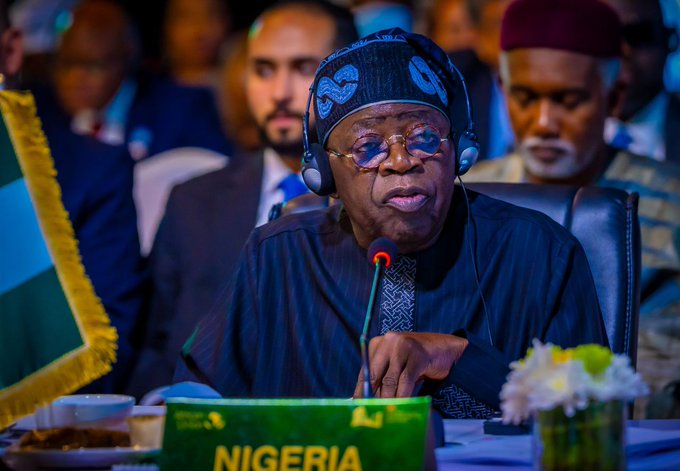If you avoid accountability now, you’ll confront it when you leave Power, Akande tells President, Govs, elected officials
On this week’s episode of Inside Sources on Channels TV, former presidential aide Laolu Akande, urged Nigerian leaders, including President Bola Ahmed Tinubu and governors, to prioritise accountability. Akande who usually gives his take at the beginning of his show on Channels Television warns that leaders who evade accountability while in office will inevitably face […]

tinubu 2
On this week’s episode of Inside Sources on Channels TV, former presidential aide Laolu Akande, urged Nigerian leaders, including President Bola Ahmed Tinubu and governors, to prioritise accountability.
Akande who usually gives his take at the beginning of his show on Channels Television warns that leaders who evade accountability while in office will inevitably face the consequences once they leave power.
The veteran journalist said, “It is essential to understand why no one is truly clever enough to escape accountability. Eventually there is always going to be a reckoning for good or bad. For instance, a president’s tenure is typically a 4-year term extending at the most 8 years if the president get a second term. Now we saw former President [Olusegun] Obasanjo who contemplated extending his tenure but he faced the instant rejection from his own political peers. If leaders manage to avoid truly being accountable in office, they will have to do so when they are out of power.”
Akande highlighted Nigeria’s current challenges, including widespread hunger and economic hardship, and expressed concern over the extravagant actions of political leaders, such as the acquisition of a new presidential jet, which starkly contrasts with the suffering of the people. He questioned whether the government truly understands the imperative of accountability.
“Today we all know that enduring narratives about former presidents and former heads of state like General [Yakubu] Gowon, Murtala Mohammed, IBB, Abacha, Abdulsalami and presidents like Obasanjo,Yar’adua, Jonathan and Buhari. for each of them, there are certain narratives and a legacy that continues to resonate especially because they are out of office. So there are those who believe holding power gives them a licence to act as they please. Audacity is good, but it is both useful for public and personal good. However, if you don’t use audacity to uplift your people, it ultimately amounts to nothing. Let us urge our Senators, our Governors, our law makers, political appointees, even our president to recognize that accountability to those they serve that is the people is actually in their best interest now and later. When leaders are accountable, it shows that they care for people and they fear God.”
Additionally, Akande noted the trend of political candidates avoiding public scrutiny and press interviews, including President Tinubu, who has yet to grant a press interview 15 months into his administration.
He suggested that the parliamentary system of government, which requires the head of government to answer questions regularly in parliament, might be a better alternative to foster a culture of consistent accountability in leadership.
“This brings us to the issue of how political leaders are interrogated ahead of elections, for instance why will the gubernatorial candidate of the APC in Edo state refuse an interview where he would easily explain his vision for the state but he has precedent as we saw major party candidate like Obasanjo in 1999 and Buhari in 2015, Tinubu in 2023. They all declined to have media presidential debate on like MKO Abiola and Alhaji Bashiru Tofa, who participated commendably in the presidential debate in 1993. Today it has become a norm in our political culture for candidate to avoid accountability even before they are elected and we must correct that in fact our presidential system allow a president to stay isolated in the presidential villa avoiding effective public scrutiny.”
He urged leaders to engage more with the public to enhance transparency and rebuild trust.
Akande’s final message was one of encouragement for leaders to embrace their role as stewards of the people’s trust. “Leadership is not about being in charge. Leadership is about taking care of those in your charge,” he stated.
His statements reflect growing concerns among Nigerians about the gap between political leaders and the people, especially during a time when economic conditions are worsening.
